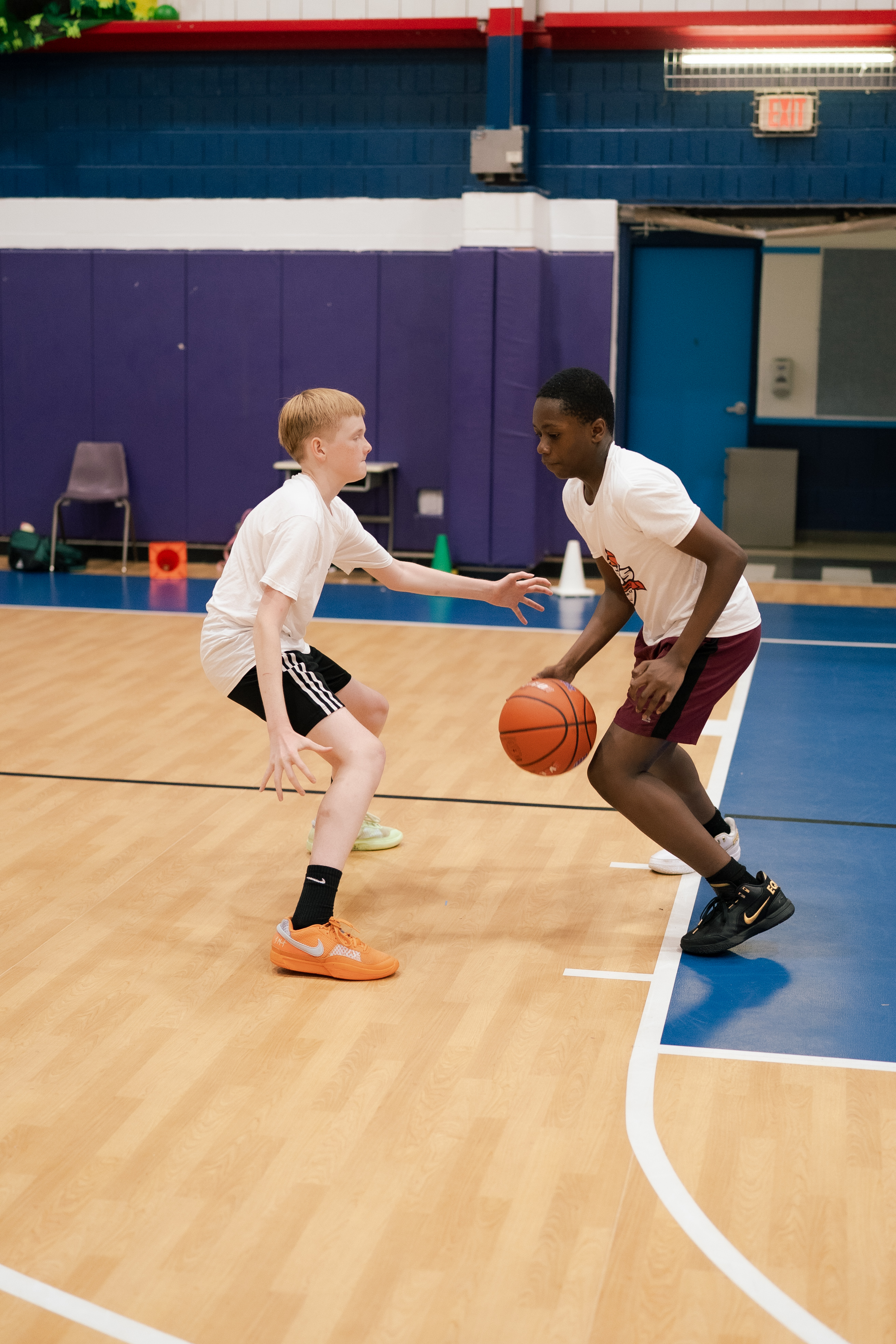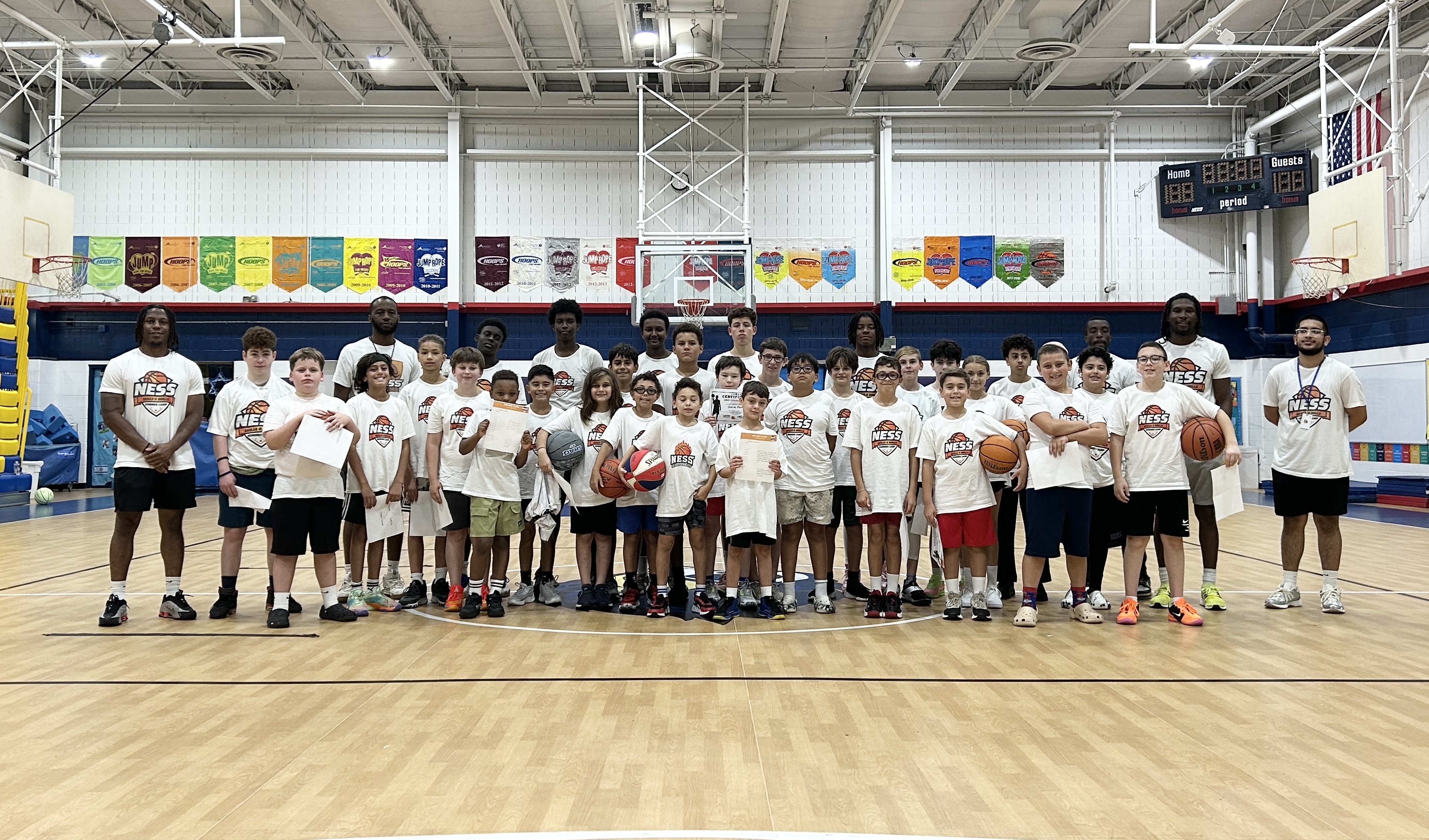The Importance of Setting Goals

Setting goals is crucial for a basketball player’s growth and performance. It helps them stay motivated, focused, and strong when things get tough, giving them a clear plan to succeed. For young players, well-defined goals help maintain commitment and discipline on the court and in life. In this article, we’ll explore the importance of goal-setting and offer practical tips for supporting your child in this process. By learning and using these strategies, you can be a big part of your child's journey in basketball, helping them do their best and enjoy the benefits of achieving their basketball aspirations.
Why Are Goals In Sport Important?
Goals play a fundamental role in sports by significantly influencing an athlete's performance and motivation. When young athletes set specific goals, they have a concrete target to aim for, which improves their focus and drives them to better their skills. This sense of direction provides a purpose for their efforts, making practice sessions more meaningful and engaging. Knowing what they are working towards helps them stay motivated and dedicated, even when faced with challenges or setbacks. Goal-setting helps kids keep trying even when things are tough. When young basketball players face challenges, their goals remind them of what they want to achieve in the long run, giving them the push they need to keep going. Plus, when they set goals and keep track of how they are doing, they can see how much they are improving over time. This boosts their confidence and gives them opportunities to celebrate all the progress they've made, no matter how small. It reinforces their commitment to keep working hard and developing in the sport.
Types of Goals for Young Basketball Players
When you're helping your young basketball players set goals, it's important to understand there are different types. First off, there are short-term goals and long-term goals. Short-term goals are things they can achieve in a short time, like improving throwing accuracy over the next month. These goals keep them motivated because they can see progress quickly. Long-term goals are bigger goals, like making the varsity team or getting a college scholarship. These take more time and effort, but they give your child something to aim for in the future. Now, let's talk about performance goals and outcome goals. Performance goals are all about your child's personal improvement, like making more successful passes in a game. They can control these goals because they depend on how much effort they put in. Outcome goals, on the other hand, are about winning games or getting specific results like scoring a certain number of points in a season. While these goals can be motivating, they sometimes depend on things your child can't control, like how the other team plays. That makes it hard to balance outcome goals with performance goals.
Another important type of goal is a process goal. These goals focus on the steps your child needs to take to reach their performance and outcome goals. For example, a process goal might be practicing dribbling drills every day for 20 minutes. Process goals help your child concentrate on what they need to do to improve, fostering consistent practice habits and skills development. Goals need to be realistic and achievable. For young players, this might mean improving their shooting percentage a little bit each week, mastering a new play, or sticking to a regular exercise routine. By setting a mix of short-term, long-term, performance, outcome, and process goals, your child can create a plan that helps them grow and stay motivated as they on their athletic journey.
Steps to Help Your Child Set Effective Goals
Helping your child set effective goals starts with figuring out what their interests and strengths are. Knowing what parts of basketball they enjoy the most and where they're naturally good can give them a strong base for setting goals. This self-awareness makes their goals more personal and exciting, which keeps your child interested and enthusiastic about their progress. One of the most effective methods for setting goals is the SMART criteria. SMART stands for Specific, Measurable, Achievable, Relevant, and Time-bound. By making goals specific, your child will know exactly what they are aiming for. Measurable goals allow your child to track their progress and see how they’re improving. Goals should also be achievable, based on what your child can do right now. Relevant goals are goals that matter to your child and their overall development in basketball. Finally, time-bound goals create a deadline to create a sense of urgency and a timeline for reaching them.
Writing down their goals is another important step. Documenting goals helps your child commit to them and gives them something to look back on and see their progress. Encourage them to keep a journal or use an app where they can regularly update and reflect on their goals and how they're doing. Regularly checking in and helping your child adjust their goals is essential for keeping them relevant and achievable. Schedule times to talk about how your child thinks they are doing, celebrate successes, and identify any challenges they might be facing. This ongoing dialogue helps your child ensure their goals remain aligned with their evolving skills and dreams.
Finally, it’s really important to celebrate when your child reaches their goals, big or small. Acknowledging small and big accomplishments helps reinforce the positive impact of goal-setting and will spur your child on to strive for the next goal. Celebrating can be as simple as some kind words or a small treat to recognize their hard work. By doing these things, you can help your child set and reach their basketball goals, helping them grow as athletes and people along the way.
Overcoming Challenges
Young basketball players often face various obstacles that can slow down their progress towards reaching their goals. This can include juggling school work with sports, dealing with physical fatigue or injuries, and handling the pressure of competing. Sometimes, they might feel unsure of themselves or lack the drive to keep going, especially when they don’t see quick improvements. The first step in helping them get past these obstacles is to recognize them. To keep your child motivated and focused on their goals, create a positive and supportive atmosphere. Celebrating small wins and setting regular goals can boost their confidence and keep their spirits high. Establishing a consistent routine that includes practice, rest, and schoolwork can also help them stay organized and less stressed out. When things go wrong, it's important to talk about it in a helpful way. Figuring out what happened, learning from it, and adjusting goals can turn failures into chances to learn and grow.
Encouraging a growth mindset is also fundamental in helping your child handle setbacks and keep their eye on their goals. This means seeing effort as the key to getting better and understanding that they can improve with practice and hard work. Praising their effort instead of just their natural talent helps them keep this mindset. By focusing on improvement and learning from mistakes, your child can develop a strong attitude that will help them not just in basketball, but in everything they do.
Conclusion
Goal-setting is a vital practice for your young basketball player, helping them grow, stay motivated, and do well in the sport. When you help your child set clear and doable goals, it keeps them focused and lets them see how they're doing. They'll learn to keep going even when things are tough. As parents, you can play a big role in this. Talk to your child about their goals, help them figure out what they're good at and what they like, and guide them to set SMART goals. I encourage you to start these conversations with your child today, setting them on a path to excel in basketball and developing valuable life skills that will serve them well beyond this game.
For expert training that is focused on forming and reaching goals, sign your child up at Ness Basketball today!
Sign up today for a free practice session
If your child is ready to improve their game, let's get to work.
Sign up


